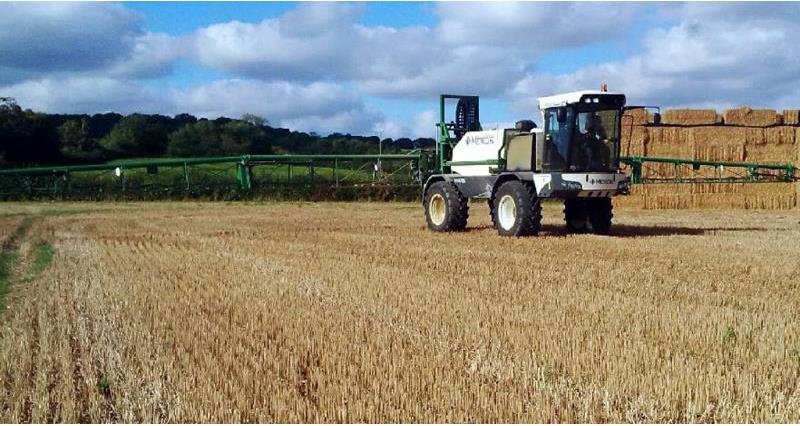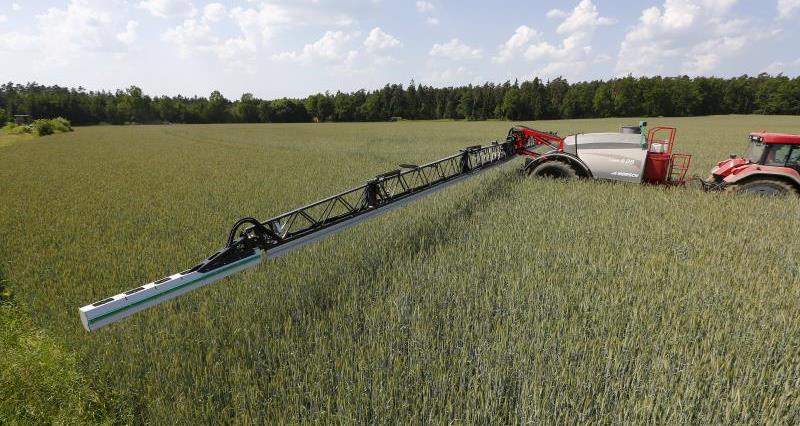The NAP (National Action Plan) sets out a series of 18 actions across three core objectives to:
- Encourage uptake of IPM (Integrated Pest Management).
- Set clear targets and measures to monitor use of pesticides.
- Strengthen compliance to ensure safety and better environmental outcomes.
Lack of detail
One of the key ways for the government to support uptake of IPM is through SFI, and the NFU believes there is scope for more IPM actions to be added.
While the NFU has welcomed the focus on IPM, farmers have been left scratching their heads about the continued lack of joined up policy-making and the potential impact this has on the progress made to date, given the sudden closure of SFI applications in the past week.
This has therefore called into question Defra’s commitment to proactively supporting IPM uptake.
While the NAP recognises the importance of pesticides in food and crop production, NFU Deputy President David Exwood said he was surprised over the lack of detail and commitment to ensure farmers and growers will have the crop solutions they need to produce food now and in the future.
“While the government rightly focuses on public health and the environment, it’s critically important this is balanced with the need to grow affordable British food and increase productivity.”
NFU Deputy President David Exwood
NAP comes up short
“The UK currently has some of the most stringent pesticide regulations in the world which control any potential impact or risks from their use,” David said.
He said UK farming is committed to demonstrating that it is continuing to take a responsible approach to using PPPs (plant protection products) and referenced how, under the previous NAP, we successfully increased training of spray operators, equipment testing, stewardship initiatives as well as establishing IPM plans on farms across the country, resulting in “world-leading professionalisation of pesticide use”.
David added: “It would have been good to see the NAP mark the progress we’ve made. The focus on IPM aligns with the NFU’s own plant health strategy, which puts IPM at the heart of all crop protection activity.
“While the government rightly focuses on public health and the environment, it’s critically important this is balanced with the need to grow affordable British food and increase productivity. For this, farmers and growers need continued support for IPM uptake and access to more effective tools to protect crops from pests, weeds and disease, and to ensure they can run thriving, profitable businesses.
“The NAP has come up short on the detail of how it will support this balance.”
Impact on competitiveness needs assessing
The government considers setting a domestic target to reduce all of its Pesticide Load Indicators by at least 10% by 2030, using 2018 as a baseline, to be an important part of the NAP, to demonstrate how risks associated with pesticide use are being reduced.
With the EU having scrapped its proposed Sustainable Use Regulation and 50% pesticide reduction target, the NFU has concerns about the effect of a UK target and requires firm commitments from government that the NAP will not impact the competitiveness of UK farmers.
Disappointingly, the NAP does little to recognise farming’s achievements to date and its continuing work in reducing the potential risks associated with pesticide use.
Farmers and growers already carry a high level of risk within their businesses and they will wonder exactly how the government will support them to go further to achieve the NAP’s objectives.
David said the NFU would continue to analyse the full detail of the NAP and work with the government to ensure the plan both protects public health and the environment, as well as driving sustainable, climate-friendly food production.



